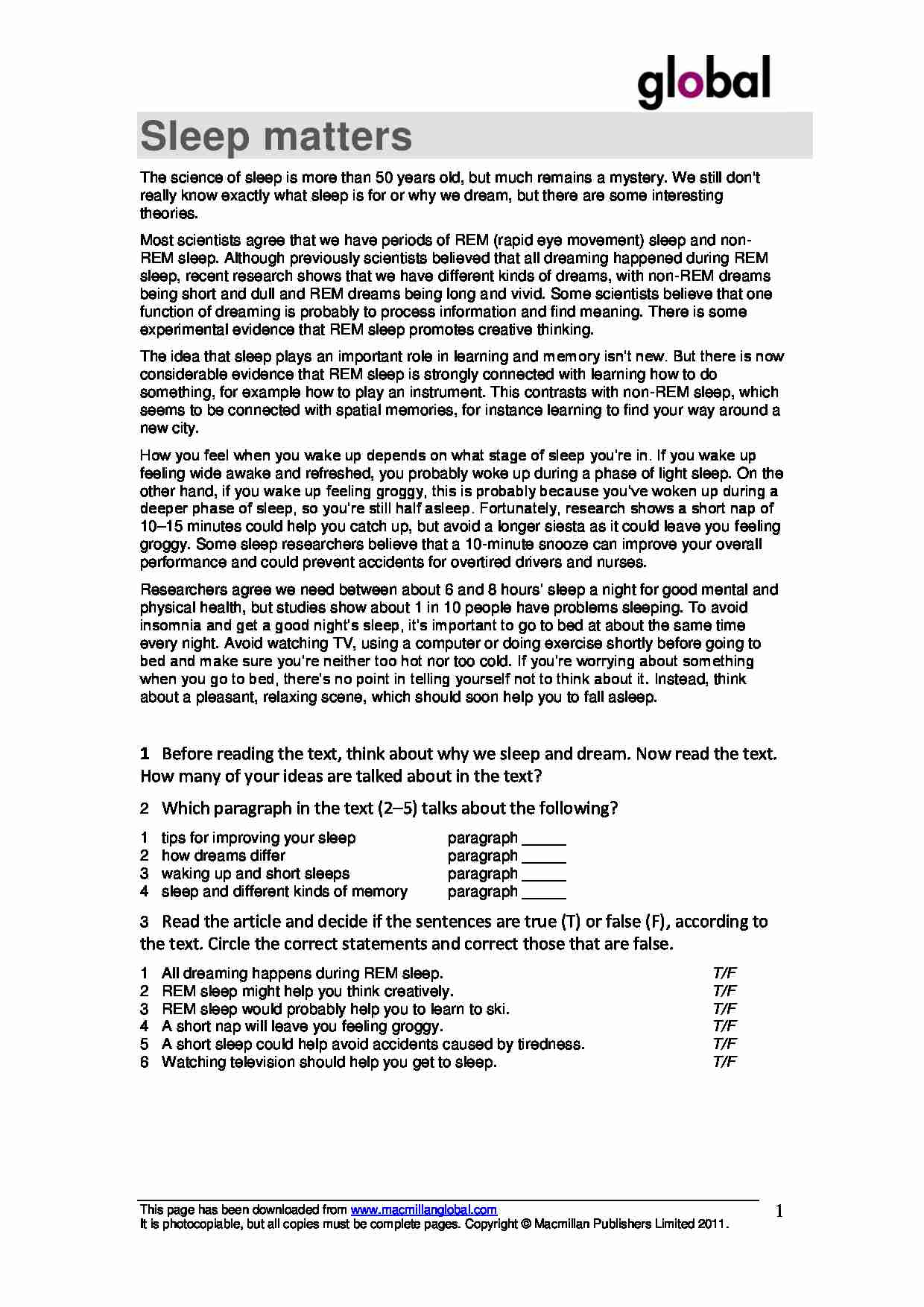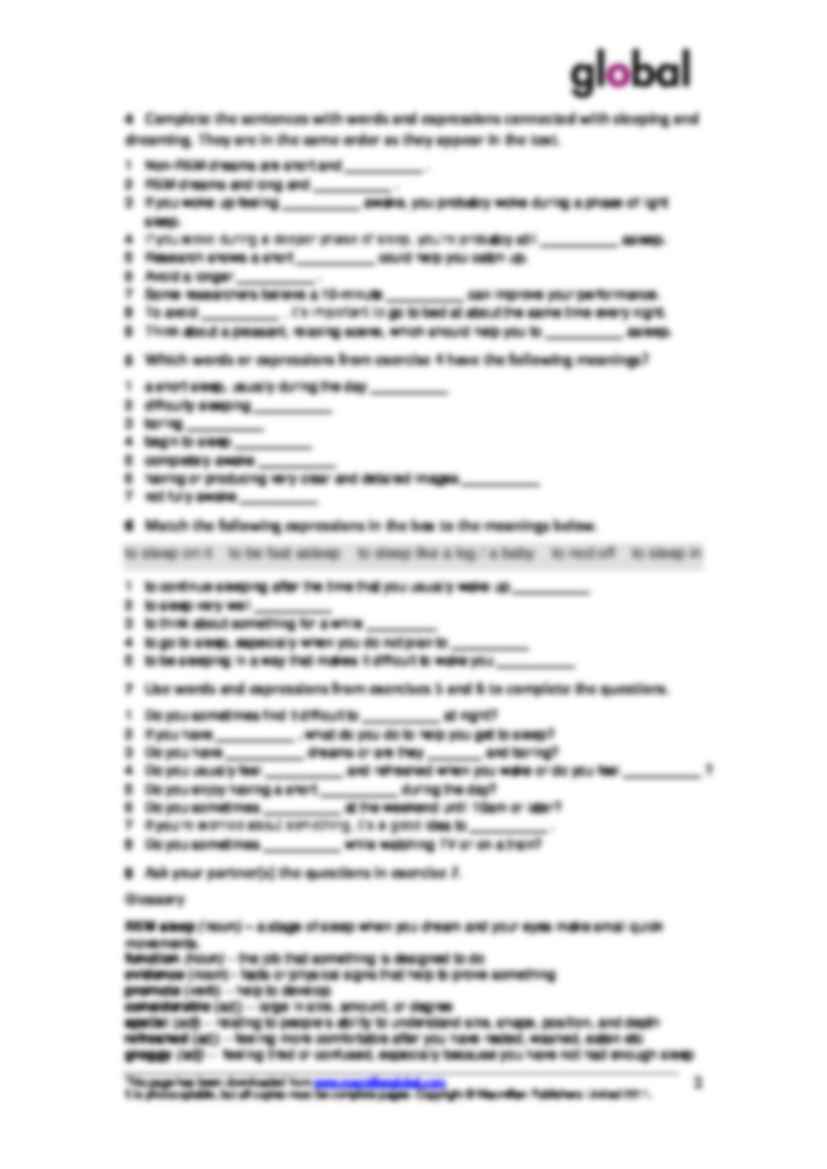To tylko jedna z 2 stron tej notatki. Zaloguj się aby zobaczyć ten dokument.
Zobacz
całą notatkę


This page has been downloaded from www.macmillanglobal.com It is photocopiable, but all copies must be complete pages. Copyright © Macmillan Publishers Limited 2011. 1 Sleep matters The science of sleep is more than 50 years old, but much remains a mystery. We still don't really know exactly what sleep is for or why we dream, but there are some interesting theories. Most scientists agree that we have periods of REM (rapid eye movement) sleep and non- REM sleep. Although previously scientists believed that all dreaming happened during REM sleep, recent research shows that we have different kinds of dreams, with non-REM dreams being short and dull and REM dreams being long and vivid. Some scientists believe that one function of dreaming is probably to process information and find meaning. There is some experimental evidence that REM sleep promotes creative thinking. The idea that sleep plays an important role in learning and memory isn’t new. But there is now considerable evidence that REM sleep is strongly connected with learning how to do something, for example how to play an instrument. This contrasts with non-REM sleep, which seems to be connected with spatial memories, for instance learning to find your way around a new city. How you feel when you wake up depends on what stage of sleep you’re in. If you wake up feeling wide awake and refreshed, you probably woke up during a phase of light sleep. On the other hand, if you w ake up feeling groggy, this is probably because you’ve woken up during a deeper phase of sleep, so you’re still half asleep. Fortunately, research shows a short nap of 10 –15 minutes could help you catch up, but avoid a longer siesta as it could leave you feeling groggy. Some sleep researchers believe that a 10-minute snooze can improve your overall performance and could prevent accidents for overtired drivers and nurses. Researchers agree we need between about 6 and 8 hours ’ sleep a night for good mental and physical health, but studies show about 1 in 10 people have problems sleeping. To avoid insomnia and get a good night’s sleep, it’s important to go to bed at about the same time every night. Avoid watching TV, using a computer or doing exercise shortly before going to bed and make sure you’re neither too hot nor too cold. If you’re worrying about something when you go to bed, there’s no point in tel ing yourself not to think about it. Instead, think about a pleasant, relaxing scene, which should soon help you to fall asleep. 1 Before reading the text, think about why we sleep and dream. Now read the text.
(…)
… having a short __________ during the day?
Do you sometimes __________ at the weekend until 10am or later?
If you’re worried about something, it’s a good idea to __________ .
Do you sometimes __________ while watching TV or on a train?
8
Ask your partner(s) the questions in exercise 7.
Glossary
REM sleep (noun) – a stage of sleep when you dream and your eyes make small quick
movements.
function (noun…
... zobacz całą notatkę




Komentarze użytkowników (0)